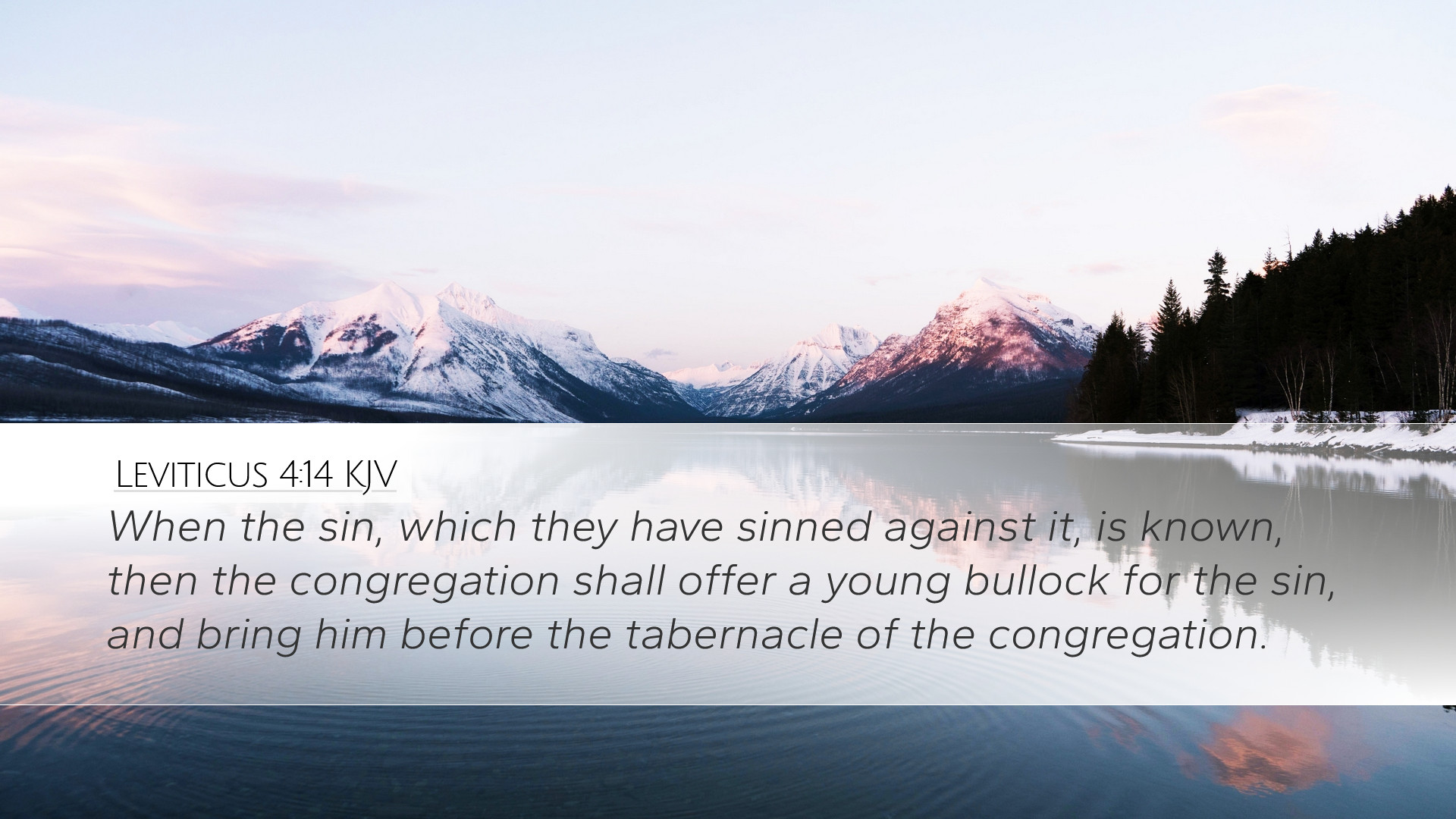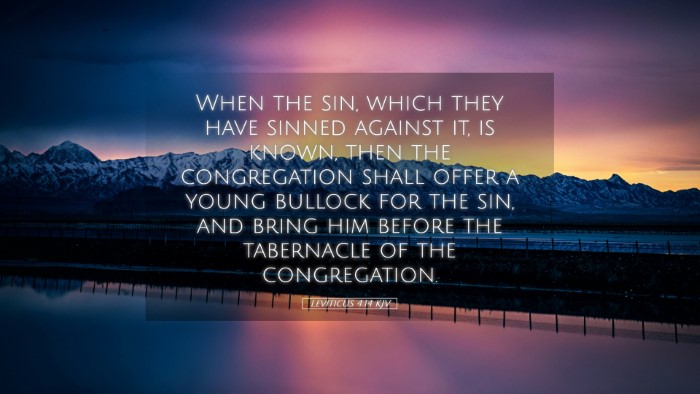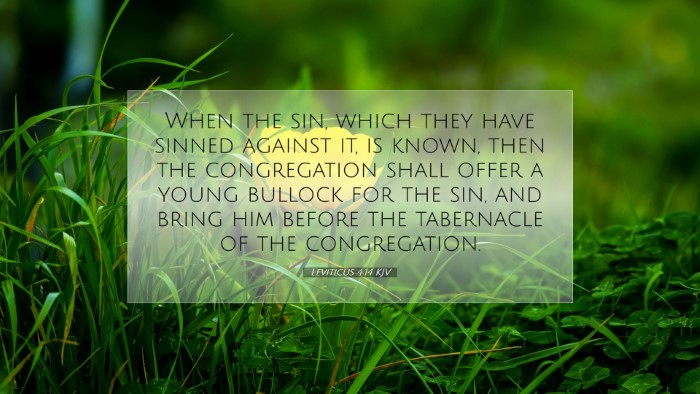Commentary on Leviticus 4:14
Verse: "When the sin which they have committed becomes known, the assembly shall offer a young bull for the sin and bring it before the tent of meeting."
Introduction
The book of Leviticus is a crucial section of the Pentateuch that deals extensively with the laws and regulations governing the worship and conduct of the Israelites. Leviticus 4:14 is significant as it outlines the communal aspect of sin and the appropriate sacrifice for atonement. This commentary draws on public domain sources to illuminate the meaning of this verse for modern believers and theologians.
Contextual Background
This verse appears in the context of the laws concerning sin offerings. Leviticus addresses the different types of sins committed by individuals and the nation collectively. The emphasis on community in this verse speaks volumes about the corporate nature of sin and responsibility in Israelite society.
Corporate Responsibility
Matthew Henry highlights the concept of communal sin and collective accountability. It is essential to recognize that the sins of individuals can affect the entire assembly. When the sin becomes known, it necessitates a corporate response—a young bull is to be offered, signifying the gravity and seriousness of the transgression. This notion fosters a spirit of unity and mutual responsibility among the community.
The Role of the Leader
Albert Barnes comments on the implications of leadership in communal sin. When a sin is recognized, it places the leaders and the assembly under obligation to address the wrongdoing. The offering of the bull symbolizes the need for an appropriate and meaningful sacrifice, reflecting not only the sin's severity but also the communal intent to restore relationships with God.
Theological Insights
Leviticus 4:14 serves as a profound reminder for contemporary faith communities regarding the significance of confession and atonement. Adam Clarke emphasizes that sin within the community must be rectified openly and with sincerity—a process that fosters spiritual growth and unity.
Symbolism of the Sacrifice
The choice of a young bull for the sin offering is not arbitrary; it represents strength, value, and the seriousness of the atonement required. As Clarke notes, this sacrifice reflects the costliness of sin and the deep need for God’s mercy. The bull, being a valuable possession, serves to underscore the gravity of both the sin committed and the redemptive sacrifice necessary for atonement.
Divine Acknowledgment
Henry stresses the significance of divine acknowledgment in this process. The assembly is called to bring their sin before God, acknowledging their failures. The act of bringing the sacrifice to the tent of meeting symbolizes the community’s intention to seek divine forgiveness and reconciliation—a vital step towards holiness and restoration.
Practical Applications
For pastors, students, and theologians, Leviticus 4:14 offers numerous applications:
- Understanding Accountability: The collective nature of sin challenges modern believers to hold one another accountable, calling communities to support and pray for each other.
- Emphasizing Sin Awareness: This verse calls for awareness of sin within the community and the importance of addressing it thoughtfully and respectfully.
- Encouraging Atonement Practices: It invites churches to incorporate acts of confession and atonement in their rituals, emphasizing the communal aspect of repentance and forgiveness.
- Recognizing the Cost of Sin: The sacrifice of a young bull serves as a reminder of the seriousness of sin and the cost of discipleship, urging believers to live lives that honor God.
Conclusion
Leviticus 4:14 is a reminder of the importance of recognizing sin within the community and the collective responsibility to address it. Through the sacrifice of a bull, the Israelites demonstrated their commitment to restoring their relationship with God. The deep theological insights from commentaries by Matthew Henry, Albert Barnes, and Adam Clarke reveal the relevance of this verse for contemporary audiences. As we reflect on this passage, we are encouraged to foster transparency, accountability, and a communal spirit of repentance in our faith communities.


